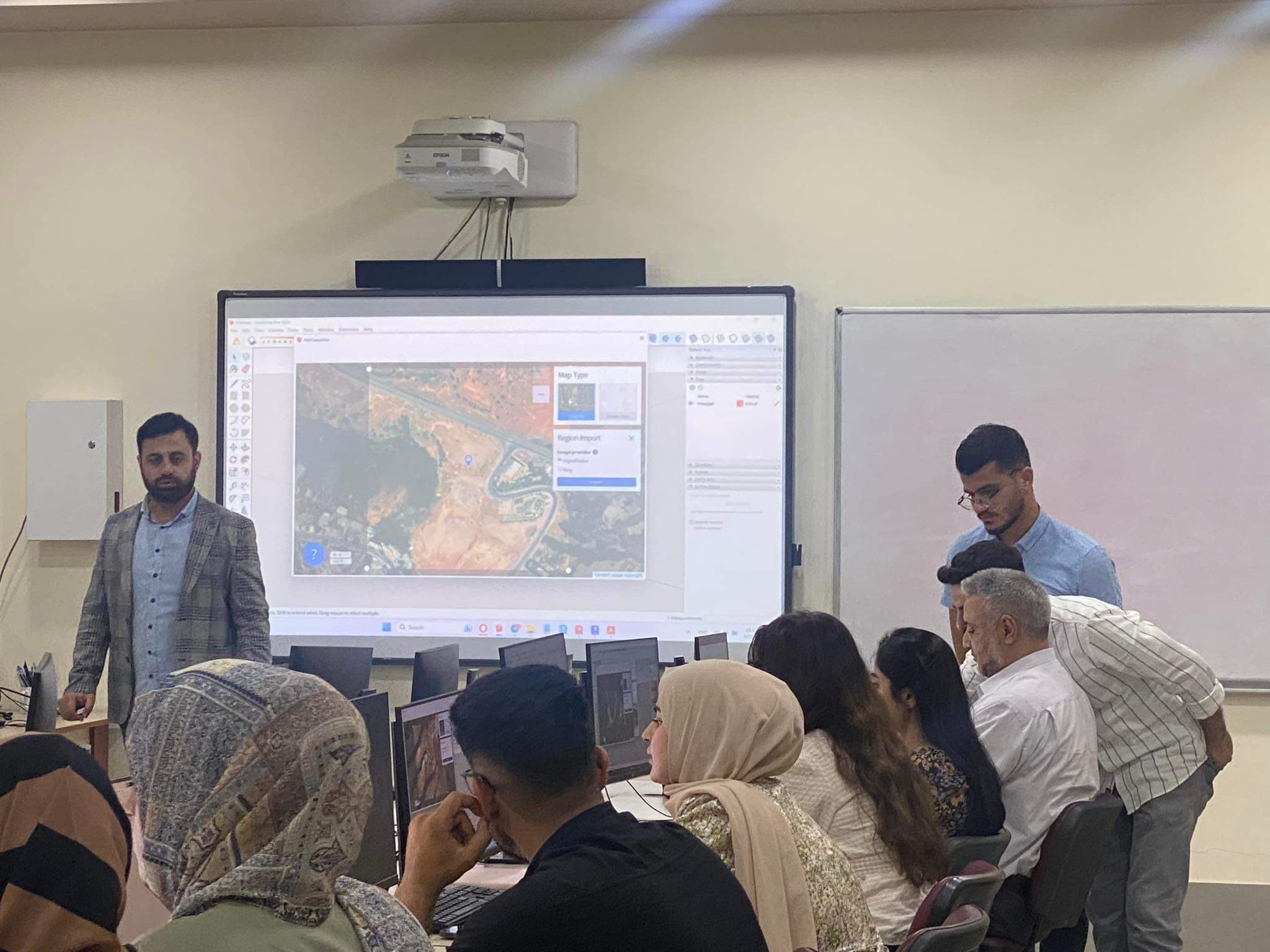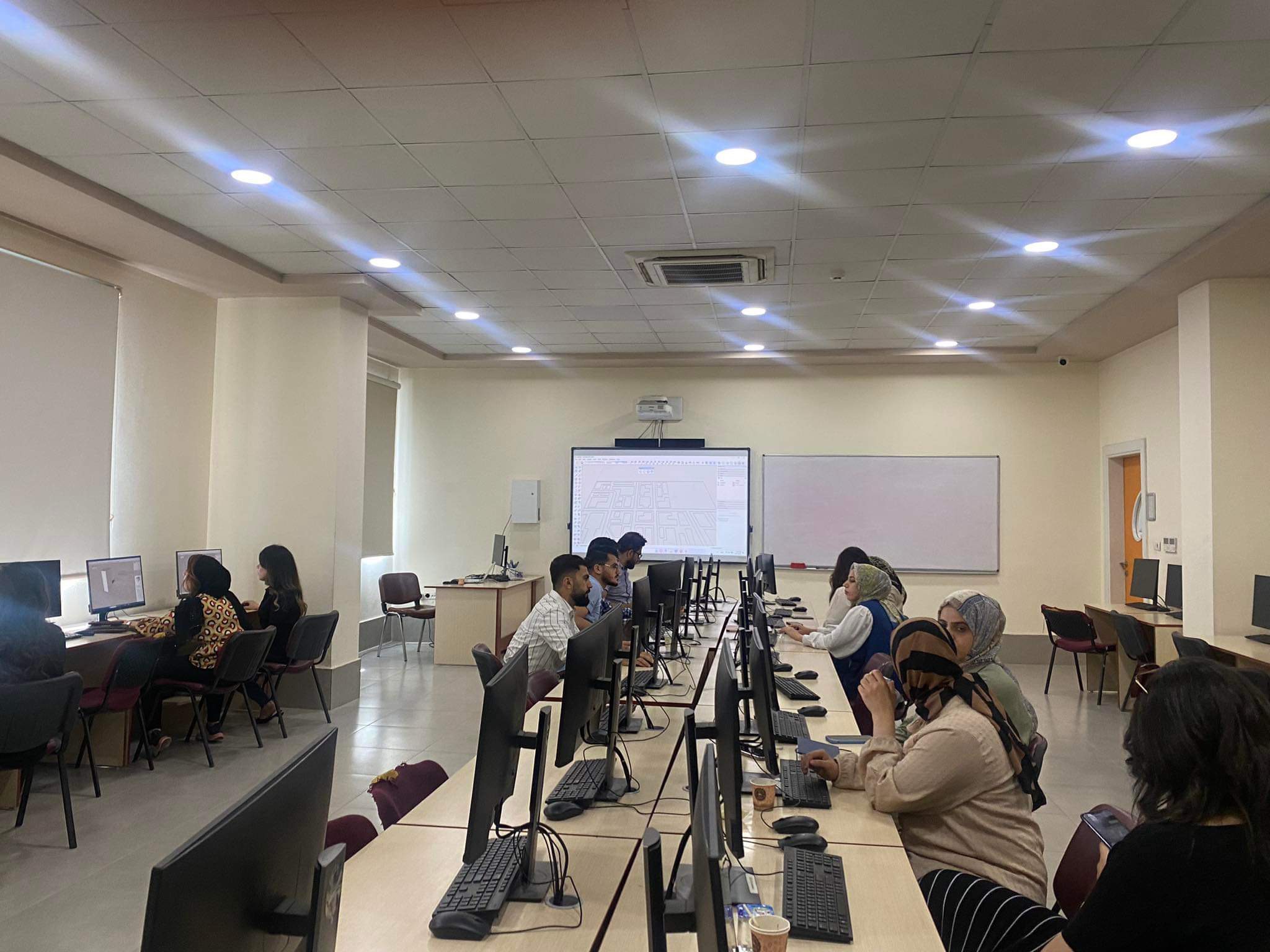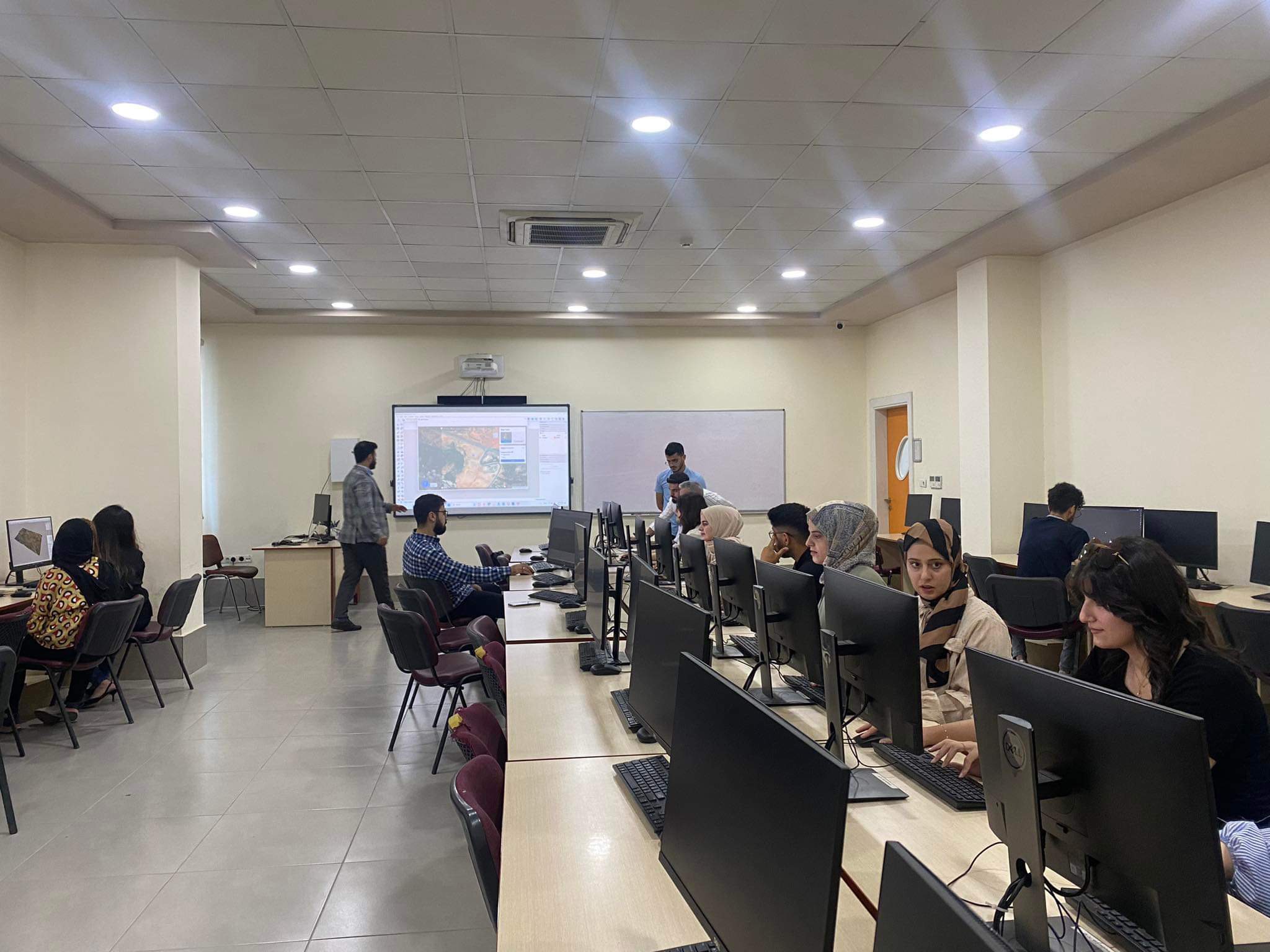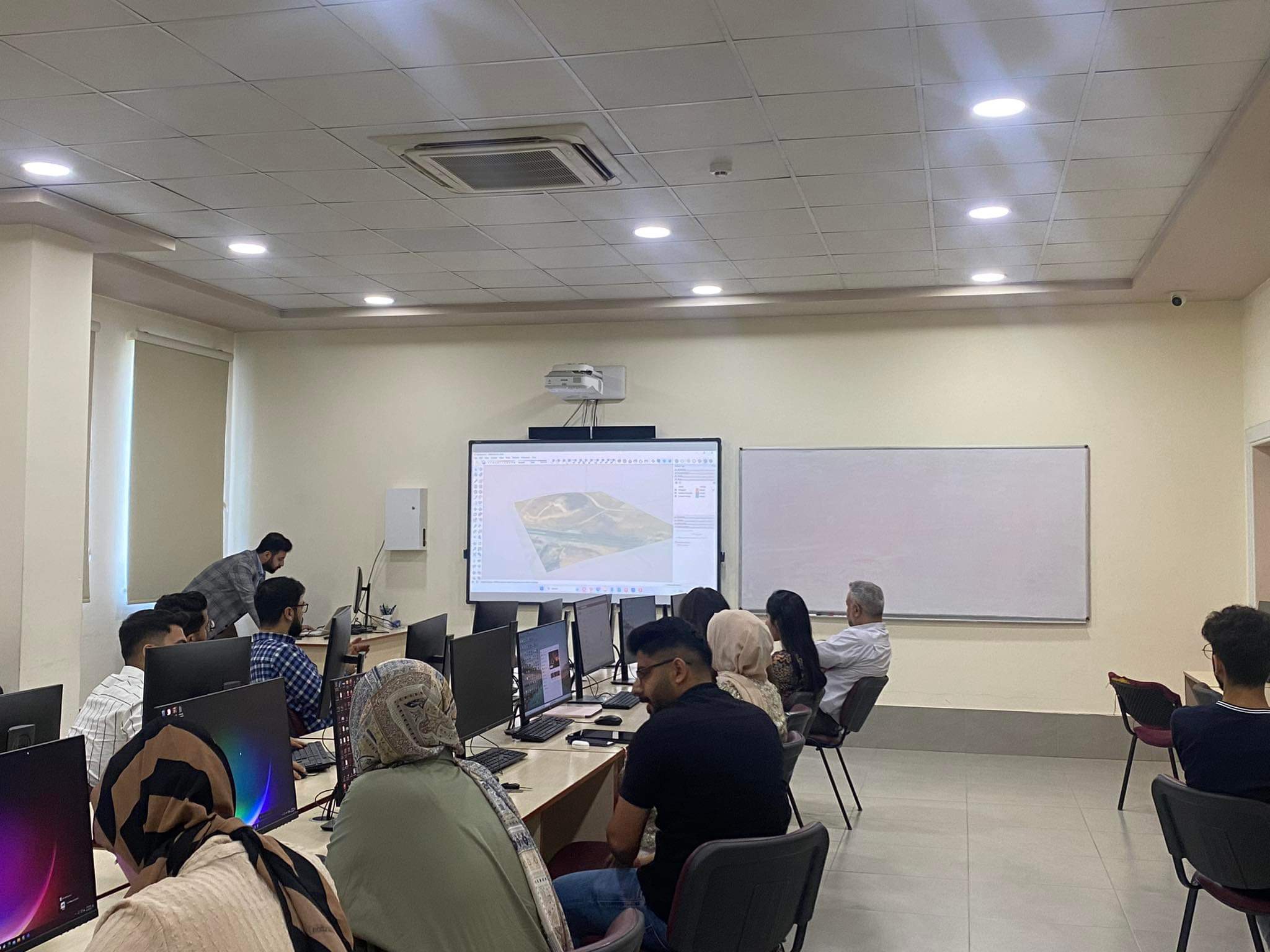Intelligent Design: Exploring the Intersection of AI and Architecture Training Course
Marking a progressive step in the journey, the Architecture Department, Faculty of Engineering at Tishk International University recently concluded its training course titled: Intelligent Design: Exploring the Intersection of AI and Architecture. This detailed seven-day event, which took place from June 21st to June 29th, 2023, from 9:00 A.M till 12:00 P.M, was hosted in Lab 235.
The training course primarily aimed at enlightening the faculty’s staff about the profound influence of artificial intelligence on current architectural methods. The curriculum spanned from fundamental aspects of site design to advanced intersections of AI in architectural practices, ensuring a holistic grasp for all participants.
The session commenced its first two days with Mr. Shad Sherzad emphasizing the essential elements of “Basics of Site Design and Mass Arrangement.” As highlighted by Mr. Sherzad, these crucial aspects form the basis of architectural planning, aiding in the creation of efficient site layouts.
On the third and fourth day, Mr. Shallaw Hamza, shed light on “Incorporating AI in Architectural Designs and Generative Design,” touching upon mid-project challenges and ethical concerns linked to integrating AI in architecture. His discussion brought forth the transformative capabilities and moral responsibilities of AI-centric architectural designs.
The subsequent day was marked by Ms. Tara Sami‘s comprehensive exploration into “Cost Estimation within Building Information Modeling (BIM).” Her presentation covered a spectrum from forecasting expenses to judicious allocation of resources, crucial for effective architectural project oversight.
On the sixth day, Mr. Siako Abdulla introduced the attendees to the nuances of the “5D Visualization Tool,” emphasizing its significant role in contemporary design mechanisms. This was seamlessly followed on the seventh day by Ms. Tara Fazil’s insights into the most recent AI enhancements in Adobe Photoshop, underscoring their contribution to design illustrations.
Structured to foster proactive participation, the training course allowed the attendees to grasp theoretical knowledge with practical application. A concluding Q&A session and feedback round ensured the solidification of concepts, catering to any outstanding questions and reinforcing acquired knowledge.
This training course stood as a landmark in guiding staff towards harmonizing AI with modern architectural concepts. The enthusiastic feedback and praise from the participants speak volumes about the course’s effectiveness. Given its success, the Architecture Department is eager and prepared to introduce similar educational ventures in the upcoming days.













